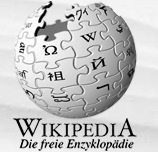The Wikipedia Is Not Enough

Douglas Groothuis has written a blog entry entitled, "Against Wikipedias (For Scholarship)."
Groothuis writes
Wikipedias are so much the rage that students are citing them in a philosophy papers. This occasioned a mini-sermon from me in one of my classes. The key excerpt was, “Never, ever, ever cite a Wikipedia in a philosophy paper.” Wikis (as they are abbreviated; our culture abbreviates everything) are unedited and unauthorized internet articles in which anyone can contribute, delete, or alter previous material. They are unregulated and ever-changing amalgamations, contingent configurations. Some of them—as least some of the time—may be well written and knowledgeable; but they lack any editorial protocol to insure decent material that conforms to standards. Thus, they are worthless as sources that one would cite in a paper or article of a scholarly nature.
I couldn't agree more. However, I would extend that not to just philosophy papers, but any papers. Further, I would extend the prohibition not just to the Wikipedia, but any encyclopedia. These are not adequate sources for a paper written at the college or graduate level.
That doesn't mean that I don't like encyclopedias, including the Wikipedia. I very much do. I have a link to the Wikipedia on the toolbar of my web browser. I use it all the time. Also, I have the entire Encyclopedia Britannica loaded onto my PowerBook, which I've written about on this blog before. I refer to it all the time to get initial information on a subject. Sometimes that information is all I need--I've been able to educate myself on something I didn't know about before or couldn't remember. But I wouldn't quote from it in a paper if the same information were available elsewhere.
The truth is that encyclopedias of any kind are merely starting points for research, not the end goal. A good encyclopedia will include a bibliography of major works about a subject. That's one reason I like the Encyclopedia Britannica. It gives me direction for further research. The downside is that all articles aren't as current as others. I use the Wikipedia for quick information on a subject, and to its credit, there are often valuable links or other sources listed at the end of the articles.
Encyclopedias were great sources for that 8th grade report on the marsupials of Australia, but they aren't adequate as a final source for information in serious research.









